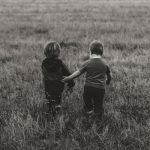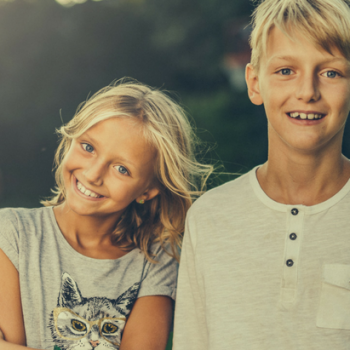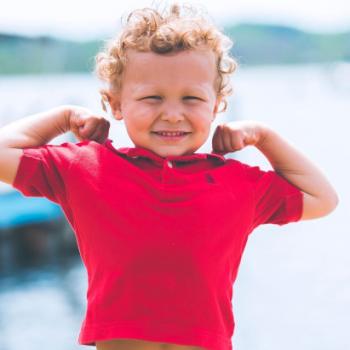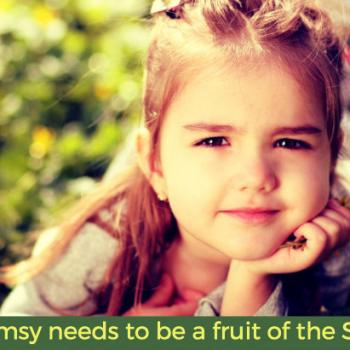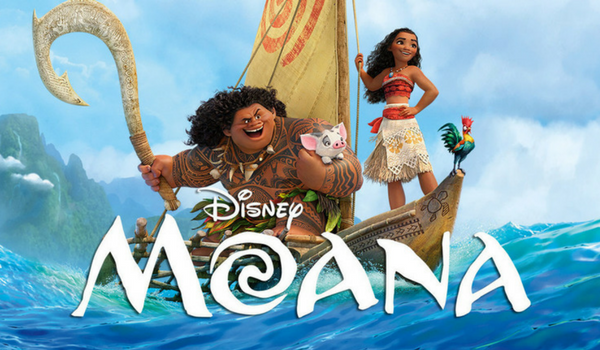
Image provided by Disney
In fundamentalism, when a child misbehaves, it is to be expected because every human child acts according to their sinful nature. They need to be saved, corrected, and brought under the authority of God. I am convinced this theological paradigm is harmful to children. How can any good parenting fruit come out of resigning our children to inevitable failure? If at the first glimpse of misbehavior, we say, “Aha! There it is. Sin. You’re showing your true colors,” we reinforce those behaviors. The consequence of such parenting is a lifetime of bearing shame for past mistakes, self-doubt, low self-esteem, and the most invisible consequence of not reaching a child’s potential. For how can a child practice their open-ended curiosity and imagination when they believe the root of their identity is evil?
But the challenge remains for Christian parents to gently guide our children as they make their mistakes, which is natural and normal in their development into adulthood.
I found my revelation while listening to the Moana soundtrack. It’s the song titled “Know Who You are,” and comes at the climactic end when Moana faces the goddess Te Fiti, a mythical being who is wreaking havoc in the region. A western, triumphalist, cowboy-saves-the-day ending would have Moana countering the angry goddess with greater power and kicking ass. But the surprising twist is that she confronts evil with lilting song.
“I have crossed the horizon to find you
I know your name
They have stolen the heart from inside you
But this does not define you
This is not who you are
I know who you are.”
And so it is, the Gospel according to Moana is not one where saving grace comes to rescue a wretched soul, but a song that empowers the other to live into their full potential.
It works. Te Fiti transforms from an angry, destructive force, into a beautiful, lush, green island that provides abundantly for everyone within her ecosystem.
Can we do this instead? When our children misbehaves, don’t heap shame upon them or tell them their behavior is a natural outworking from a sinful nature. Tell them they are more than their mistakes, that their faults and errors are not the totality of who they are. Affirm them of the goodness within them and call them into the fullness of who they are. This is unfundamentalist parenting, that we confront evil not with power, but with song. Words gently and lovingly serenaded into our children’s ears, “This is not who you are. I know who you are.”
It works. It will work. I think often Christian parents are afraid of not using harsher methods, believing in the lie that we will raise weak-willed, spoiled kids unless we demand submission or nip disobedience in the bud. But no, children who are respected and given autonomy to listen to their own voice and develop into their own unique selves become whole people who extend that dignity to others.
Remember what happens just before Moana approaches Te Fiti. She has an identity crisis after several setbacks in her mission to save her island. And through a vision, her grandmother affirms her and calls her to hear the “quiet voice still inside you.” Listen, Moana, she coaxes. Then comes the most powerful soliloquy of the whole movie, when Moana claims her own identity as,
the girl who know what she loves (her island and her sea),
who knows from whom she comes, (the daughter of the village chief, descended from voyagers),
who owns her past (I am everything I’ve learned and more),
but who knows where she is going, (come what may, I know the way, I AM MOANA!)
It was only when Moana found wholeness for herself that she was able to love others with courage and trust. Life begets life. A robust sense of self and identity isn’t selfish, it is the truest way to become the most selfless person.
This is the hard work we have to do, the healing work inside of our own selves. This claiming of our individuality grounded in our community, both historically and geographically; this inner work of forgiving our own past and forging onward; this is how we will arrive at meeting our children’s full humanity, not with a desire to control, but to set free.
And this is how, together with our children, we will find out how far we’ll go, traversing an ocean, expansive with adventure, healing, and hope.
Join us at Raising Children Unfundamentalist.

